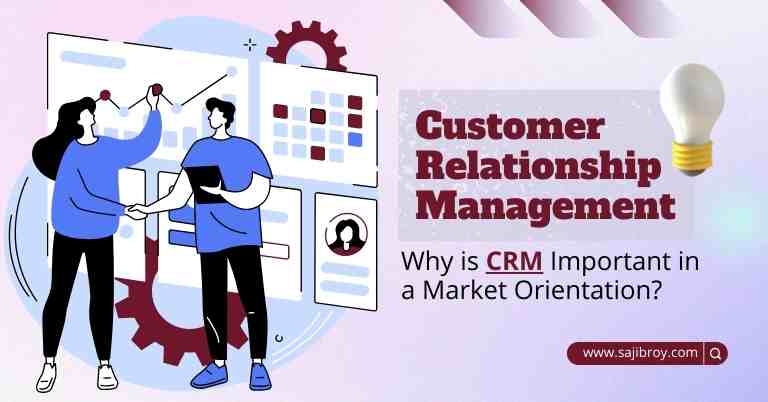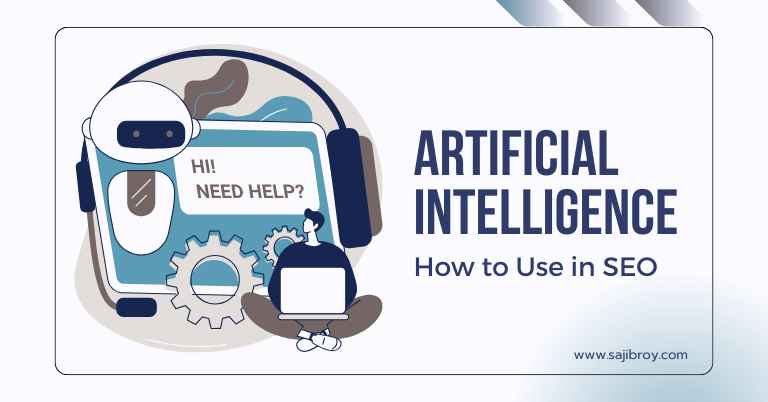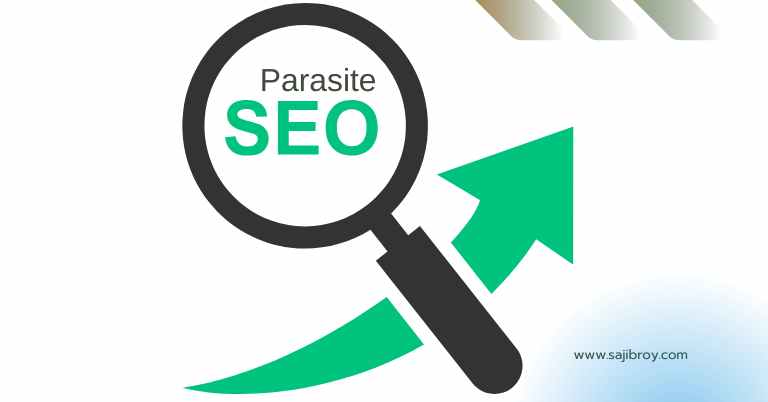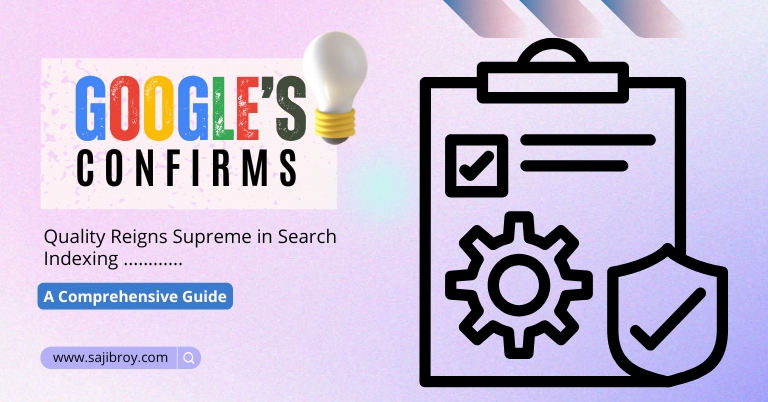Customer relationship management (CRM) is a term that refers to practices, strategies and technologies that companies use to manage and analyze customer interactions and data throughout the customer lifecycle. It can be used to track customer data, sales, and marketing activities. CRM can also help businesses identify and target new customers, as well as improve customer retention rates. With the advent of new technologies, customers are now more connected than ever before and have more choices when it comes to the products and services they purchase. As a result, businesses must work harder to build and maintain strong relationships with their customers. In this article, I will elaborate on why is customer relationship management important in a market orientation. Let’s SEE-
Definition: Customer relationship management (CRM) is the art of creating, maintaining and enhancing customer relationships through communication and interaction.
| At a Glance |
|---|
| In a market orientation, customer relationship management is important for several reasons. 1. First, acquiring and retaining customers is critical to success in any business; without customers, businesses would not exist. 2. Second, building strong relationships with customers can lead to increased customer loyalty and repeat business; both of which are essential for long-term success. 3. Finally, managing customer relationships effectively can help businesses gather valuable information about their target markets, which can be used to make better marketing and product decisions. |
The goal of CRM is to help companies foster better relationships with their customers, which can lead to improved customer retention rates and increased revenue.
There are many different ways that companies can go about managing their customer relationships, but some common methods include collecting customer data, analyzing it, and then using it to improve communication efforts.
Additionally, CRM systems often include features such as automated marketing campaigns, loyalty programs, and customer service tools. Overall, having a strong CRM strategy in place is crucial for any company that wants to maintain a healthy relationship with its customers. By understanding their needs and desires, companies can ensure that they are providing the best possible experience for their customers – which will ultimately lead to more business down the line.

Let's See the Topic Overview
What is Customer Relationship Management?
If you’re in business, then you know the importance of keeping your customers happy. But what exactly is customer relationship management (CRM)? CRM is a system that businesses use to keep track of their customers’ information and interactions.
Customer service is the best way to maintain a healthy customer relationship & customer relationships are the lifeblood of any business.
This way, businesses can better understand their customers and find ways to improve their relationships with them. There are many different CRM software systems available, each with its own set of features. But all CRM systems share some common elements, such as:
Contact information: This includes basic information about your customers, such as their names, address, and phone number. It also includes any other contact information that you have, such as their email address or social media handles. Interaction history: This is a record of all the interactions that you’ve had with a customer, both online and offline.
This could include things like phone calls, emails, live chats, support tickets, and meeting notes. Opportunities and leads: If you’re sales-focused, then you’ll want to track opportunities and leads in your CRM system. This way you can see which customers are interested in your products or services and follow up with them accordingly.
Deals and quotes: Like opportunities and leads, deals and quotes are also important for sales-focused businesses. Deals represent actual sales that have been made (or are close to being made), while quotes are proposals that have been sent to potential customers. Tracking this information in your CRM system can help you close more deals and increase your overall sales figures.

Role of Customer Relationship Management
As the world of business becomes more and more competitive, the need to have a solid customer relationship management (CRM) strategy in place has become increasingly important. CRM is a process that helps businesses manage their interactions with current and potential customers. By using CRM, businesses can track customer data and use it to improve their marketing and sales efforts.
Additionally, CRM can help businesses build stronger relationships with their customers, leading to increased loyalty and repeat business. There are many different components that make up a successful CRM strategy. First, you need to have a way of tracking customer data.
Customer Relationship Management is not a one-time event. It’s an ongoing conversation that must be had every day.
This data can be collected through various means such as surveys, contact forms, website cookies, and purchase history. Once this data is collected, it needs to be stored in a central location so that it can be easily accessed and analyzed. Another important component of CRM is having systems in place that allow you to automate your marketing and sales efforts.
For example, you might use an email marketing tool like MailChimp to send out automated emails to your customers based on certain criteria such as when they last made a purchase or what type of products they’ve shown interest in. Additionally, many CRM software platforms come with features like lead scoring which can help you prioritize your sales prospects so that you’re spending your time on the most promising leads. Finally, one of the most important aspects of CRM is creating processes that encourage strong communication between your team members.
When everyone on your team is using the same platform and has access to the same customer data, it’s much easier for them to collaborate effectively on sales and marketing campaigns. Additionally, regular check-ins and training sessions can help ensure that everyone is using the system correctly and taking advantage of all its features.
What are the Main Purposes of Customer Relationship Management?
The main purpose of customer relationship management is to create and maintain a strong, healthy and long-lasting relationship between a company and its customers. This can be done through various methods such as providing excellent customer service, constantly communicating with customers, offering discounts and deals, and much more. By having a strong relationship with its customers, a company can ensure that they will continue to do business with them for many years to come.
In a market orientation, the purposes of customer relationship management are two
- First, CRM can help you learn about your customers’ needs and preferences so that you can better tailor your products and services to meet their demands.
- Second, CRM can help you build strong, lasting relationships with your customers by providing them with the excellent service and support they need and deserve.
By investing in CRM, you’re making a wise investment in the future of your business.
Why is Relationship Marketing So Important in Today’s Market?
In today’s market, relationship marketing is more important than ever. With the vast majority of consumers now spending their time online, it’s essential for businesses to build relationships with their customers in order to stay competitive. One of the most important aspects of relationship marketing is creating a strong bond between the customer and the brand.
This can be done in a number of ways, but some of the most effective include providing excellent customer service, developing personalized marketing campaigns, and offering loyalty rewards. Another reason why relationship marketing is so important is that it helps businesses to stand out from the crowd. In a world where there are thousands of brands competing for attention, building strong relationships with customers can help you stand out from the rest.
Finally, relationship marketing helps to create repeat business. If customers have a positive experience with your brand and feel like they have a personal connection to it, they’re much more likely to continue doing business with you in the future.
Identify 12 Benefits of Customer Relationship Management Systems
Are you looking to improve your customer relationships? If so, implementing a Customer Relationship Management (CRM) system could be the answer. CRM systems help businesses keep track of their customer interactions, manage sales and marketing processes, and streamline customer service.
In short, CRM systems help businesses better understand and serve their customers. There are many benefits of using a CRM system.
Here are 12 of the most important:
1. Improve Customer Relationships
By tracking customer interactions and keeping detailed records of each interaction, businesses can get a better understanding of their customer’s needs and preferences. This information can then be used to improve customer relationships by providing more personalized service that is tailored to each individual customer’s needs.
2. Increase Sales and Revenue
By managing sales processes more effectively with a CRM system, businesses can increase their sales and revenue. CRM systems help businesses track leads, follow up with prospects, and close deals more efficiently. In addition, by having a better understanding of their customer’s needs and preferences, businesses can sell more effectively by offering products or services that are more likely to appeal to their target market.
3. Save Time and Money
CRM systems can save businesses time and money by automating repetitive tasks such as data entry, email marketing campaigns, or generating reports. In addition, by having all customer information stored in one central location, businesses can save time when searching for specific details about a particular customer or interaction. Finally, by streamlining processes such as sales or customer service inquiries, businesses can reduce the amount of time spent on these tasks overall which further saves time and money in the long run.
4. Enhance Marketing Efforts
Customer data collected through a CRM system can be used to enhance marketing efforts by segmenting customers into groups based on shared characteristics such as location, age group, gender, interests, etc. This information can then be used to create targeted marketing campaigns that are designed specifically for each segment, which will result in improved results compared to general marketing campaigns.
5. Improve Customer Retention rates
By reducing the number of lost or forgotten customers, improving communication with customers, and providing superior levels of service, CRM systems help businesses retain existing customers at a higher rate. Furthermore, happy customers tend to refer new business opportunities to companies they’re satisfied with; thus resulting in an indirect effect on acquisition rates as well.
6. Increased Customer Loyalty
When customers feel valued and appreciated, they are more likely to stick with your brand, even when faced with competition. Improved Customer Retention: It costs less to keep existing customers than it does to acquire new ones, so it’s important to focus on retaining the customers you have. More Positive Word-of-Mouth Advertising: Happy customers are more likely to tell others about their positive experiences with your company, which can help attract new business.
7. Long-Term Relationship
Customers who have a positive relationship with a company are more likely to make purchases and recommend products or services to others. Thus, developing strong customer relationships should be a priority for any business that wants to succeed in the long term. There are many ways to build positive customer relationships, such as providing excellent customer service, being responsive to customer feedback, offering personalized service, etc.
8. Make Organized
It Helps You Stay Organized With a good CRM system in place, you’ll never have to worry about losing track of a customer or their contact information again. Everything will be stored in one central location, making it easy for you to access when you need it. This can save you a lot of time and frustration down the line.
9. Better Customer Service
It Allows You to Provide Better Customer Service. When you have all of your customer data at your fingertips, it’s much easier to provide them with the high level of service they expect and deserve. You can quickly pull up their purchase history, preferences, and contact information whenever you need it, meaning that no question will go unanswered and every issue can be resolved quickly. In short, happy customers mean repeat business – something that every company wants.
10. Create a Convenient Marketing Platform
It Makes Marketing Easier With all of your customer data in one place, it becomes much simpler to target them with marketing materials that are relevant to their interests. No more mass emails or generic ads – with CRM, everything can be personalized based on each individual client’s needs and wants.
11. Define Your Goals
What do you hope to achieve by using CRM? Do you want to improve customer retention? Drive more sales? Get a better understanding of your customer’s needs? Be sure to define your goals upfront so you can choose the right solution for your business.
12. Consider Your Budget
There are many affordable (and even free) CRM solutions on the market today. However, some systems can be quite pricey – especially if you need features like custom reporting or integration with other software applications. Make sure you consider your budget when choosing a system.
By making an effort to nurture your customer relationships, you can reap all of the above-mentioned benefits and more.
Not only is this more effective overall, but it also shows your customers that you care about meeting their specific needs rather than just selling them anything and everything under the sun.

Examples of Customer Relationship Management
In business, the customer is always right. This age-old adage still holds true today, despite all of the changes that have taken place in the business world over the years. One thing that has not changed, however, is the importance of maintaining a good relationship with your customers.
Customer Relationship Management (CRM) is a term that refers to the various processes and strategies businesses use to manage their interactions with customers. CRM can encompass everything from customer service and support to marketing and sales. The goal of CRM is to build strong, lasting relationships with customers that will result in repeat business and referrals.
Customer service is a continuous learning experience. You never quite know what’s coming next.
There are many benefits to having a solid CRM strategy in place. Perhaps the most obvious benefit is that it can help you increase sales and grow your business. But CRM can also help you improve customer satisfaction and loyalty, reduce costs, and better understand your customers’ needs and wants.
Here are just a few examples of how CRM can benefit your business:
- By keeping track of customer interactions (phone calls, emails, live chats, etc.), you can get a better understanding of what they want and need from your products or services. This information can then be used to improve your offerings.
- By tracking purchase history, you can upsell or cross-sell related products or services that may interest your customers. For example, if someone buys a new car from you, you could offer them an extended warranty or service plan.
- By monitoring customer satisfaction levels, you can identify areas where improvements need to be made in order to keep them happy (and spending their money with you).
For example, if you notice that there are lots of complaints about long wait times on your phone line, you know it’s time to do something about it!
Conclusion
Customer Relationship Management (CRM) is a business strategy that helps organizations manage their customer relationships in a more organized and efficient way. In a market orientation, CRM is important because it helps businesses to identify and understand their customers better, which leads to improved customer satisfaction and loyalty. Additionally, CRM can help businesses to develop more targeted marketing campaigns that are more likely to result in sales.
Keep Learning With Sajib Roy



![6-Month Local SEO Plan [Download Your Complete Proposal Template]](https://www.sajibroy.com/wp-content/uploads/2025/01/6-Month-Local-SEO-Plan-Download-Your-Complete-Proposal-Template.jpg)









I believe customer relationship management (CRM) is incredibly important in a market-oriented company. By keeping track of customer data, tracking customer feedback and managing negative feedback, a company can better understand its customers and make better decisions.
That’s a tough question. Some people might say it is, while others might say it isn’t. Ultimately, it comes down to what your company’s culture and mission are.
Obviously informative pieces article!
Thank you for explaining to us that customer relationship management helps businesses build stronger connections with their customers to increase loyalty and repeat business. I imagine if you manage a plumbing company, it would help to have a business manager ensure your customers will be satisfied with your services and seek them again. I’ll keep this in mind and look for where we can get BRM professional certification for the company soon.